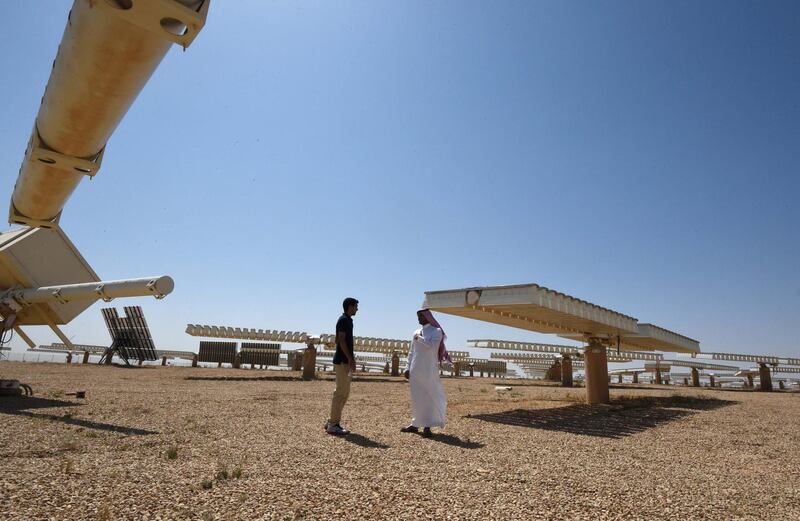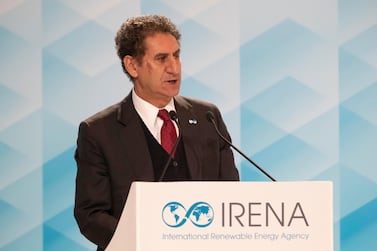Saudi Electricity Company raised $1.3 billion (Dh4.7bn) from the sale of a dual-tranche green sukuk, it said in a statement on Sunday.
The state-owned electric transmission company sold five-year and 10-year dollar-denominated green sukuk, or Islamic bonds, to finance various green capital projects such as smart meters.
The bonds, which will be listed on the Irish Stock Exchange, were oversubscribed four times with total orders for both tranches exceeding $5.2bn.
"The green sukuk issuance received high demand from international investors in the Middle East, Asia, and Europe," SEC said in a filing to the kingdom's bourse, Tadawul.
The issuance is the latest in the growing number of environmentally-friendly debt instruments. Green bonds are a type of fixed-income instrument that are specifically designed to finance climate and environmental projects such as renewable energy. In November 2008, the World Bank issued a green bond that became the blueprint for the market.
Moody's Investors Service expects green bond volumes to range between $175bn to $225bn this year, down from its earlier forecast of $300bn, after economic fallout from the coronavirus outbreak reduced issuance in the first quarter, it said in a May report.
Saudi Electricity Company's green bond issuance comes as the kingdom is focused on diversifying its economy away from oil and is planning billions of dollars worth of projects in tourism, entertainment and renewable energy.
The company sold $650m in a five-year tranche with a fixed profit rate of 1.74 per cent per annum and $650m in a 10-year tranche with a fixed rate of 2.413 per cent per year, it said.
The proceeds from the sukuk sale will be used to finance eligible green projects that will help contribute to climate change mitigation, it said.
This includes procuring and installing smart meters, a method of creating potential energy consumption savings and potentially reducing or avoiding carbon emissions, according to the company.
Its roll-out of approximately 10 million smart meters started in January this year with full implementation expected by March 2021.
Other eligible projects include connecting renewable energy sources to the grid, with nine projects scheduled for completion between 2020 and 2021, it said.
SEC has a monopoly on the transmission and distribution of electric power in the kingdom.
On August 27, it announced signing a syndicated murabaha facility agreement, or Islamic loan, of 9bn riyals with local banks including The National Commercial Bank.
The company is indirectly 81 per cent owned by the government, with the ownership made up of a 74.3 per cent share held by the Public Investment Fund and a 6.9 per cent share by Saudi Aramco. The remaining 18.8 per cent is owned by the general public.
The company is rated 'A2' by Moody’s, 'A-' by Fitch and 'A-' by S&P.








